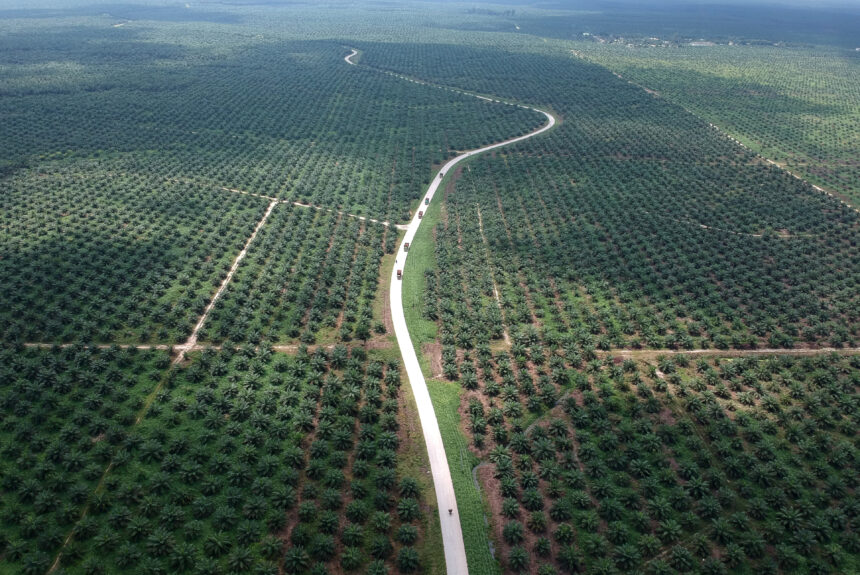Considered the least environmentally friendly of all oil crops, palm oil is a problem. The ubiquitous ingredient is found in nearly half of all consumer products ranging from lipsticks to household cleaning agents to ice cream. Agricultural palm oil is responsible for a host of global ills including deforestation, biodiversity loss, and the acceleration of climate-warming greenhouse gases. Nonetheless, the ingredient remains widely used, with roughly 75 million tons of palm oil produced globally pre-pandemic, according to data from the UN Food and Agriculture Organization (FAO). That number is expected to exceed 78 million tons by year’s end as demand for vegetable oils recovers from a pandemic-induced hit to its supply chain.
>>>READ: Patagonia’s Purpose-Driven Business Model is an Ode to Clean Capitalism
C16 Biosciences, a New York City-based climate-tech startup, is creating a sustainable alternative to the conflict-laden commodity. The biotechnology research company is disrupting the $61 billion palm oil industry with the launch of Palmless™, its science-backed solution to the problem of conventional palm oil.
Set to enter the market in early 2023, Palmless™ is a bio-based palm oil alternative derived from a wild-type yeast. The beauty sector will be the first to benefit from the company’s advancements in biotechnology.
“Palmless™ is more than the start of commercial roll-out of C16 Biosciences’ technology. It’s also about holding manufacturers and brands to a higher standard: a better option is available. There are no more excuses,” Shara Ticku, co-founder and CEO of C16 Biosciences, said in a press release.
The company’s name is a reference to palmitic acid, a saturated long-chain fatty acid consisting of 16 carbon atoms that is the building block of palm oil and its derivatives. The biotech firm uses the same 16-carbon fatty acid to create Palmless™, palm oil’s microbial alternative. Utilizing yeast in the centuries-old process of fermentation, the vegetable oil replacement achieves the functional equivalence of standard palm oil.
Importantly, C16’s product is not chemically identical to the agricultural palm oil that is grown in industrial farms worldwide. However, “it contains the same fatty acids, which are the molecular fingerprints of fats and oils, that palm oil does,” David Heller, co-founder and Head of Operations at C16 Biosciences, told CNBC. “And that’s a really important characteristic that allows our oil to function in the same kind of end products in the food and beauty and personal care space as palm oil does.”
In 2018, C16 secured $20 million in funding in a Series A investment round led by Bill Gates-backed sustainable energy investment firm Breakthrough Energy Ventures. The funds were used to develop a 50,000-liter industrial-scale fermentation, a key operational milestone in the new product launch process. The company has raised $24 million in total venture capital to date, according to data from Crunchbase.
Having successfully moved beyond the early-stage R&D phase, C16 is currently focused on scaling its commercial-grade product and bringing costs down. Ticku and Heller eventually aim to create a wide variety of vegetable oil replacements in the near future with their proprietary platform technology.
Public aversion to palm oil is not new. However, the industry has lacked a viable alternative to replace the high-yield ingredient present in millions of consumer products. Palm oil is so prevalent due in part to its efficacy: Palm oil accounts for roughly 40% of the world’s traded vegetable oils but uses less than nine percent of global cropland dedicated to oil production, FAO data from 2018 revealed. The ingredient is therefore a natural product of choice for small farmers looking to earn a steady income year-round.
>>>READ: What Europe’s ‘Due Diligence Proposal’ Gets Wrong
However, palm oil’s expansion comes at the expense of rainforests worldwide. A study in the journal Nature found that clearing tropical rainforest to make way for palm oil plantations has been a significant driver of deforestation in high-rainfall regions around the equator–particularly in Indonesia and Malaysia, two Southeast Asian countries with booming palm oil industries. As a whole, land use changes tied to palm-driven deforestation in Malaysia have collectively been responsible for the equivalent of 500 million tons of carbon dioxide (CO2) emissions into the atmosphere each year, according to a 2018 analysis from the International Council on Clean Transportation (ICCT). This represents approximately 1.4 percent of all global net CO2 emissions, the ICCT said. Additionally, palm-driven deforestation is a key driver of biodiversity loss and species extinction. Habitat loss tied to the palm oil industry places endangered species like the orangutan, pygmy elephant and the Sumatran rhino at risk of extinction, the World Wildlife Fund reported. The problem with palm oil also extends to the labor market. The sector is deeply linked to child labor and widespread human rights abuses–particularly in countries like Indonesia, as a damning 2016 report from Amnesty International found.
Achieving our ambitious climate change goals requires developing sustainable alternatives to readily used products. The launch of C16’s next-generation oil is yet another instance of private sector innovation creating solutions to reduce emissions, protect wildlife, and promote healthier lifestyles.
Nathalie Voit is a freelance content creator and a graduate of the University of Florida. She is an alumni of The Heritage Foundation’s Young Leaders Program.
The views and opinions expressed are those of the author’s and do not necessarily reflect the official policy or position of C3.
